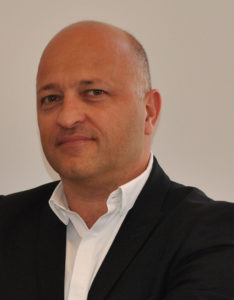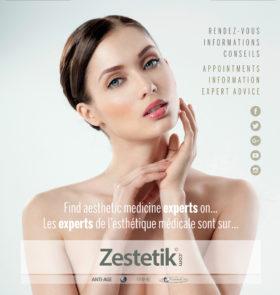By Doctor Frédéric Braccini
Botulinum toxin is the number one rejuvenating facial treatment chosen by patients and doctors worldwide.

A host of new indications and techniques have been developed using this product, which is deemed as safe after undergoing hundreds of clinical trials over the last 25 years. Today, the toxin is used to perform “full face and neck” treatments, on its own or before filler injections.
Purity and precision for 3D distribution
Of the three toxins on the market, only Bocouture (Merz) is described as “pure” by the industry. This BoNTA is a fantastic clinical solution when injected by a doctor who masters injection techniques and knows how to distribute the product precisely, and its use is even more interesting with better knowledge of the muscle patterns and neuromuscular junctions (where the nerve goes into the muscle). We know where to inject deeply and where to treat superficially, according to the muscle attachments, which allows for great precision and allows us to control the product’s distribution. The results achieved on a mobile face are more natural, because they respect the facial dynamics. In-depth knowledge of these facial dynamics combined with the precision of Bocouture allow us to use it specifically on the middle and lower parts of the face, as well as the neck.
These developments are possible thanks to our better understanding of the three-dimensional distribution of the facial muscles. This is where the “3D” treatment approach comes in.
Physiochemically-speaking, Bocouture does not contain any protein complexes and therefore, in theory, no elements that might provoke an autoimmune reaction or cause the body to produce antibodies. This purity permits us to reinject after a shorter space of time, as is already the case for therapeutic injections with Xeomin. As for Bocouture, based on clinical and scientific studies, this toxin was the first to obtain approval from the healthcare regulatory board for three indications: forehead, glabella and crow’s feet.
Zone by zone treatment
BoNTA and hyaluronic acid are very useful tools that can visibly and naturally correct facial flaws or negative expressions, such as a tired, anxious, sad or angry expression. As we age, muscle changes produce expressions that project emotional messages which do not match the patient’s personality or state of mind. The treatment always starts with the upper part of the face.
Forehead lines respond perfectly to injections into the muscle that lifts the eyebrow, as do glabellar lines, which make a person look angry or strict, especially men. The advantage of Bocouture is that the range of its distribution is so precise that there is no “frozen look”. For crow’s feet, three injection points smooth the periorbital lines and, if necessary, can lift the tail of the eyebrow. In the middle of the face, sometimes the small muscle at the tip of the nose is overactive when in movement or when the person smiles, making it point downwards and thus accentuating any bumps on their profile. A small dose of toxin blocks the muscle and enables us to rotate the tip upwards, which softens the appearance of any bumps and the dilation of the nostrils. As for a gummy smile, the muscles that pull the lip upwards are relaxed so that they cover up the gums when the person smiles. This injection also acts upon on the nasolabial folds.
Marionette lines are one of the most negative aspects of facial expression, caused by a hyperactive muscle that pulls the corner of the mouth downwards. By relaxing this muscle, we can reposition the edges of the mouth. For “barcode” lines on the upper lip, microinjections combined with other techniques can smooth this area.
In the lower third of the face, powerful chewing muscles are responsible for a square jaw. Relaxing these muscles over several sessions can reduce their thickness and make the face look more feminine and triangular. Hyperactivity in these muscles is often associated with teeth grinding and, in this case, BoNTA plays both an aesthetic and a functional role.
In the chin, the two small muscles often contract to create an “orange peel” effect, which is easily treated.
Over time, the cutaneous muscle of the neck, which is thin and very spread out, becomes damaged and the platysma muscle fibres become visible through it. These tight fibres, which can be difficult to treat surgically, can be relaxed with injections all the way along the muscle, giving way to a smooth and youthful neck.
 Doctor Frédéric Braccini
Doctor Frédéric Braccini
Plastic surgeon, international expert in surgery and aesthetic medicine, member of the American Society of Plastic Surgeons, scientific co-director of the Face2Face congress, Face Aesthetics Masterclass and Nice Rhinoplasty Course, tutor and lecturer.







